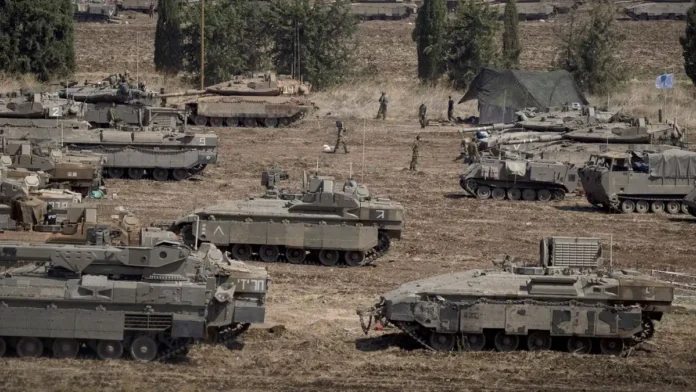Amid escalating tensions, Israel has launched a series of raids in southern Lebanon targeting Hezbollah strongholds, increasing speculation of a potential ground invasion. These strikes come in the wake of Hezbollah’s growing influence in Lebanon and its active support from Iran. Israeli forces have specifically targeted key Hezbollah infrastructure, signaling a sharp escalation in hostilities.
Recent Developments
In late September 2024, Israel intensified air raids in southern Lebanon, coinciding with the killing of key Hezbollah leaders, including Hassan Nasrallah, in Beirut. These attacks have triggered fears of a larger military campaign, potentially leading to a full-scale war between Israel and Hezbollah. Hezbollah has responded with rocket fire into Israeli territory, further destabilizing the already fragile region. Israeli Defense Forces (IDF) have stated that their strikes are aimed at neutralizing the militant group’s growing military capabilities, which have been bolstered by Iranian arms supplies.
The raids also raise concerns about a potential ground invasion, a tactic Israel has employed in past conflicts, such as the 2006 Lebanon war. Ground operations could involve Israeli commandos pushing into Hezbollah-controlled areas to weaken the group’s military influence. Although U.S. officials have urged caution, fearing broader destabilization in the Middle East, Israel continues to build up its military presence along the northern border.
Strategic Significance
Hezbollah, a Shiite militant group, holds significant political and military power in Lebanon. With its advanced missile arsenal and robust network of fighters, it presents a formidable challenge to Israel. Over the years, Hezbollah has solidified its influence with backing from Iran, making it one of the most powerful non-state actors in the region. Israel’s actions are aimed at weakening this influence before it becomes an existential threat to its security.
International Reactions
The raids have drawn a mixed reaction from the international community. While Israel maintains that the strikes are necessary for its national security, concerns have been raised regarding the humanitarian impact on Lebanon, where thousands of civilians have fled toward Syria. Major global powers, including the U.S., are urging Israel to refrain from a full-scale invasion to avoid a larger regional conflict. There are also fears that the situation could spark broader Iranian involvement, potentially turning Lebanon into a key battleground in the Israel-Iran proxy war.
Conclusion
As the conflict intensifies, the possibility of an Israeli ground invasion looms large. The situation remains volatile, with potential repercussions for the entire Middle East. Whether Israel will proceed with an invasion or focus on strategic airstrikes remains to be seen, but the risks of a broader war involving Hezbollah, Iran, and Israel continue to grow.



